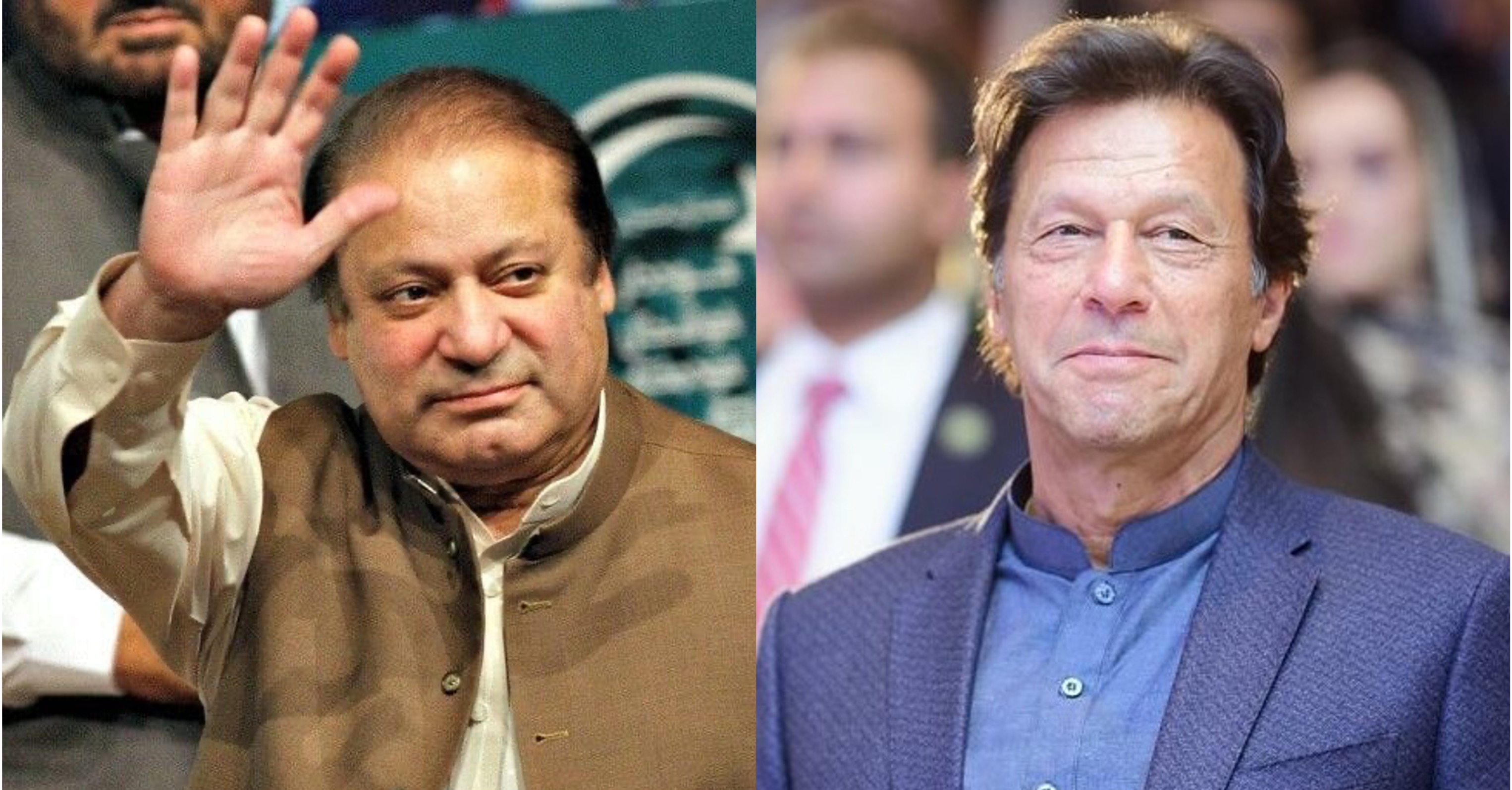In an unprecedented result in Pakistan's electoral history, allies of a jailed former prime minister won the most seats in the lower house of Parliament.
However, they did not win enough to form a simple majority — and Pakistan's immediate political future looks to be up in the air.
Nawaz Sharif, once and future PM?
Prior to the polls on Feb. 8, Nawaz Sharif of the Pakistan Muslim League-Nawaz (PML-N) party looked likely to become Pakistan's 24th prime minister.
Sharif was predicted as a shoo-in for prime minister, reported the BBC, as he presented himself as an experienced leader with three premierships under his belt—1990, 1997 and 2013.
In 1990, he vowed to reduce government corruption and became the 12th Prime Minister of Pakistan, but was dismissed on July 1993. During his term from 1997 to 1999, Sharif was ousted in a military coup.
His comeback in 2013 was a historical moment for the country as it marked the first transition from one democratically elected government to another since independence in 1947.
However, his third term began with a six-month opposition blockade of the capital Islamabad, and Sharif resigned after being disqualified due to corruption allegations.
He was jailed twice for corruption in 2018, and fled to London soon after in 2019, where he lived in self-imposed exile for the next four years.
In October 2023, he returned to Pakistan pardoned of all his crimes, and was welcomed back by the same military establishment that ousted him in a coup.
Imran Khan, popular politician barred from running as PM
Sharif's strongest challenger and the country's last elected prime minister, Imran Khan of the Pakistan Tehreek-e-Insaf (PTI) party could not stand in election after being sentenced to fourteen years in jail in the days leading up to elections, as reported by Pakistani news outlet Dawn.
Khan's record as prime minister has faced challenges, having been widely criticised for a collapsed economy, rising costs of living, alleged human rights violations and a peace deal with the Pakistani Taliban that backfired during his term as prime minister.
He was ousted from office in a vote of no confidence in 2022.
The former cricket star Khan was given numerous convictions in the recent months, including corruption and fradulent marriage.
A conviction against Imran and his wife Bushra Bib for illegally profiting from state gifts also barred them from holding any public office in the next ten years.
Khan argued that the charges are politically motivated.
Prior to the election, the Pakistan Supreme Court ruled that the PTI could not use its cricket bat symbol in the elections, a blow to the party's chances in rural areas where voter literacy is low.
Bhutto-Zardari, young challenger
A notable third candidate is the 35-year-old Bilawal Bhutto-Zardari of the Pakistan People's Party (PPP).
Son of former prime minister Benazir Bhutto and and former president Asif Ali Zardari, he was the foreign minister during the coalition government after Khan's ousting.
He and his party made expensive pledges during their campaign, such as doubling wages and subsidies for the wealthy.
Election result
The three candidates represent the three main parties that dominate Pakistan's political landscape, where over 40 political parties vied for seats in the government.
No elected government has been able to complete a full term in Pakistan's political history.
As of Feb. 11, after delays in the reporting of the results, it emerged that no one party managed to form a simple majority out of 266 seats in the National Assembly (i.e. 134 seats).
Allies of Imran Khan's PTI managed to win a plurality, with 97 seats. The PMLN won 76 seats, while the PPP won 54. The rest went to candidates not affiliated with any of the three main parties.
Even if the PMLN and the PPP united to form a coalition (no sure thing), they would only have 130 seats. However, Sharif gave a "victory" speech on Feb. 10 (Singapore time) and invited others to join his party in a coalition government, the New York Times reported.
He declared that the PTI would not be part of his government.
What next?
Meanwhile, supporters of Khan released a video that made use of AI to simulate his voice and give a "victory" speech too.
BREAKING: Jailed former prime minister of Pakistan Imran Khan uses AI video to claim victory for PTI party in Pakistan electionshttps://t.co/48u8lOkbPq
Virgin 602, Freeview 233 and YouTube pic.twitter.com/pOlltlCzFU
— Sky News (@SkyNews) February 9, 2024
PTI's interim chief Gohar Ali Khan said that as the largest party in parliament, the PTI will attempt to form a coalition government, Al-Jazeera reported.
However, the New York Times speculated that the party would prefer to remain in opposition instead of leading a weakened government with their charismatic leader in jail, citing unnamed PTI leaders.
PTI also plans to challenge the results of certain races, alleging vote tampering and interference by the country's powerful military establishment.
It could be several months before a new government is sworn in.
Top image via Nawaz Sharif and Imran Khan/Facebook

If you like what you read, follow us on Facebook, Instagram, Twitter and Telegram to get the latest updates.



